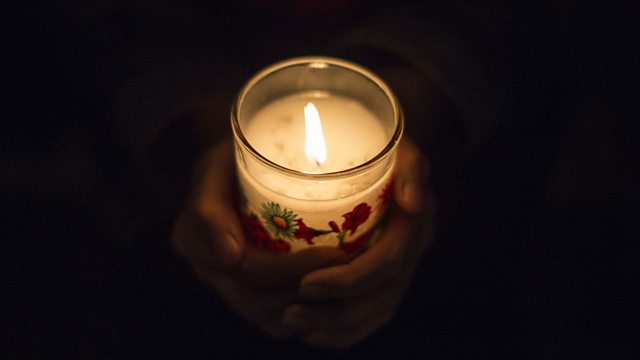Professor Mona Siddiqui - 12/12/16
Thought for the Day
Described as the `heart and soul of the paper’ AA Gill, the long standing columnist and restaurant critic for the Sunday Times, drew attention to his illness in his own witty and inimitable style. Just 3 weeks before he died, his newspaper column told his readers that he was suffering an embarrassment of cancer and that the effects of chemotherapy may have affected his taste buds. He spoke of how his cancer had spread, “There is barely a morsel of offal that is not included. I have a trucker’s gut-buster, gimpy, malevolent, meaty, malignancy”. In an interview for the paper the same day, he said he regarded himself lucky to have lived for so long. When asked by his doctor how much he wanted to know, he replied, `Everything and the truth.’
I find this bold and courageous. Death is our only human certainty but most of us are too afraid to talk about it with our own families never mind go public. In pre-modern societies, death was communal with its own rights and rituals but modern life has made death a largely sequestered event removing it from public consciousness - death has come to symbolise the abnormal in society, its institutionalised in hospitals and homes so as to be almost shunned from public gaze. It is seen as a depressing topic not really central to the business of living life. For many it’s the ultimate emptiness. Sigmund Freud argued that not only can we not imagine our own death but that the whole process of civilisation is a self defense mechanism to substitute for the anxieties of death. Culture was a collective means to `render human mortal life bearable and even meaningful.
I never used to think about death until my mother died almost twenty years ago because you don’t think about it until you lose someone you love. Even though I had read the qur’anic verses` to God do we belong and to him do we return’ so often, that death is a new destiny the door to an eternal life, such words offered little consolation. Traditional piety encourages us to see this world as transient but for most of us, all that we hold precious, our desires and all that we are, belong to this life. The poets remind us that our brief earthly existence is still meaningful because to have lived once, that cannot be taken away from us. But over the years, I’ve realised that talking about our fears around death can make us more aware of living life to the full, that death like love gives weight to our lives. It helps us appreciate what is important, and makes us grateful for simple and ordinary days. If we can normalise our struggles around death, it may help us to live life well.
Duration:
This clip is from
More clips from Thought for the Day
-
![]()
Professor Mona Siddiqui - 11/11/2025
Duration: 02:59
-
![]()
Rev Lucy Winkett - 10/11/2025
Duration: 03:11
-
![]()
Bishop Richard Harries - 07/11/2025
Duration: 02:49






